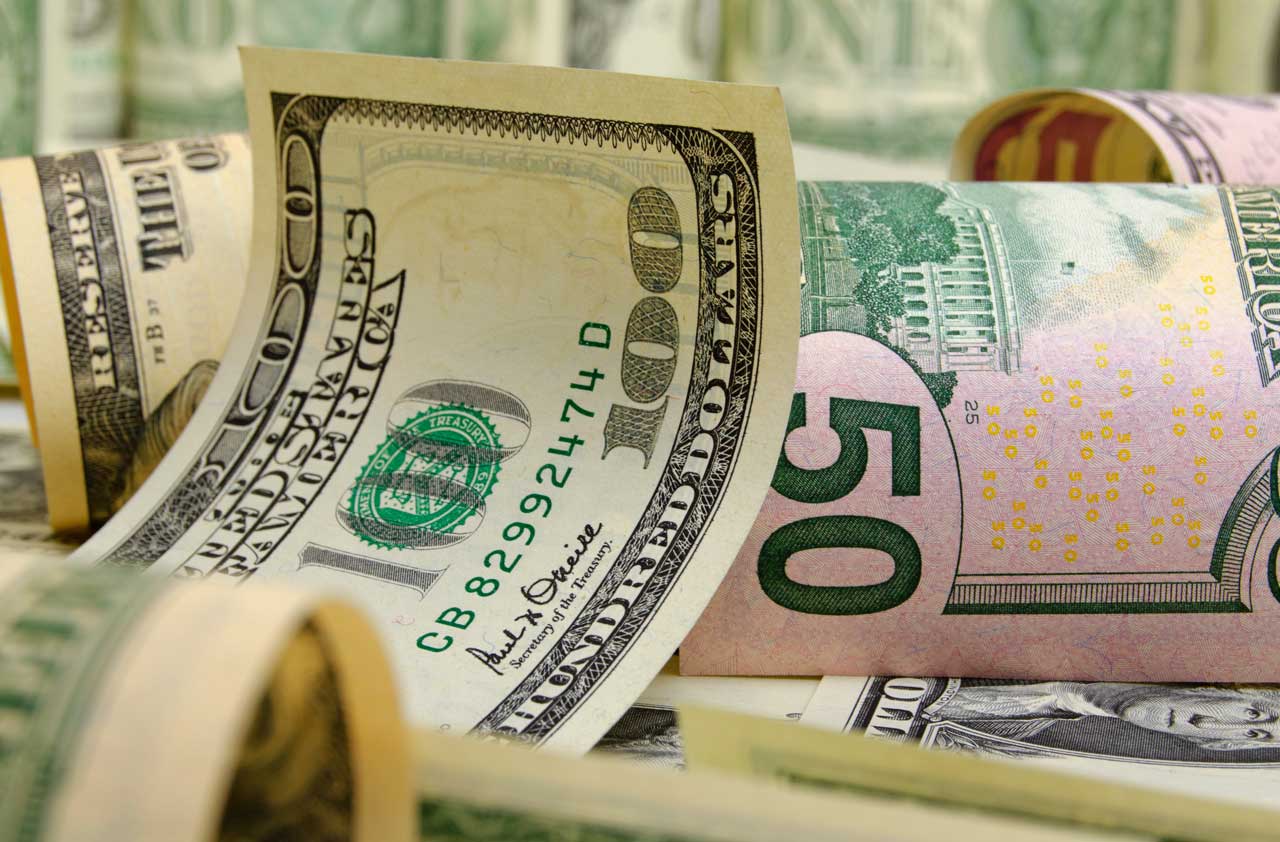Two Good Dividend Stocks Yielding More Than 4%
A drugmaker and an MLP promise attractive payouts to investors yearning for better yields.


Profit and prosper with the best of Kiplinger's advice on investing, taxes, retirement, personal finance and much more. Delivered daily. Enter your email in the box and click Sign Me Up.
You are now subscribed
Your newsletter sign-up was successful
Want to add more newsletters?

Delivered daily
Kiplinger Today
Profit and prosper with the best of Kiplinger's advice on investing, taxes, retirement, personal finance and much more delivered daily. Smart money moves start here.

Sent five days a week
Kiplinger A Step Ahead
Get practical help to make better financial decisions in your everyday life, from spending to savings on top deals.

Delivered daily
Kiplinger Closing Bell
Get today's biggest financial and investing headlines delivered to your inbox every day the U.S. stock market is open.

Sent twice a week
Kiplinger Adviser Intel
Financial pros across the country share best practices and fresh tactics to preserve and grow your wealth.

Delivered weekly
Kiplinger Tax Tips
Trim your federal and state tax bills with practical tax-planning and tax-cutting strategies.

Sent twice a week
Kiplinger Retirement Tips
Your twice-a-week guide to planning and enjoying a financially secure and richly rewarding retirement

Sent bimonthly.
Kiplinger Adviser Angle
Insights for advisers, wealth managers and other financial professionals.

Sent twice a week
Kiplinger Investing Weekly
Your twice-a-week roundup of promising stocks, funds, companies and industries you should consider, ones you should avoid, and why.

Sent weekly for six weeks
Kiplinger Invest for Retirement
Your step-by-step six-part series on how to invest for retirement, from devising a successful strategy to exactly which investments to choose.
In our quest to find good dividend stocks yielding 5% or more, two promising candidates fell just below the cutoff. One is a foreign drugmaker, and the other is a master limited partnership, or MLP, focused on shipping liquefied natural gas. Both deserve the attention of income investors due to their attractive dividends and solid business prospects.
Some cautionary notes: Foreign stocks pose currency risk related to their markets in Europe or elsewhere. MLPs tend to be sensitive to interest rates and could slump if rates climb sharply. Also, MLPs issue complex K-1 forms, rather than standard 1099s, so they can be a headache come tax time. Consult a tax planner before investing.
(Prices and yields are as of June 29. Unless otherwise indicated, price-earnings ratios are calculated based on estimated earnings for the next 12 months.)
From just $107.88 $24.99 for Kiplinger Personal Finance
Become a smarter, better informed investor. Subscribe from just $107.88 $24.99, plus get up to 4 Special Issues

Sign up for Kiplinger’s Free Newsletters
Profit and prosper with the best of expert advice on investing, taxes, retirement, personal finance and more - straight to your e-mail.
Profit and prosper with the best of expert advice - straight to your e-mail.
AstraZeneca
Market capitalization: $75.5 billion
Price-earnings ratio: 10
Dividend yield: 4.6%
Brexit issues aside, British drugmaker AstraZeneca (symbol AZN, $29.85) is muddling through what CEO Pascal Soriot calls a “transitional period.” Sales of its two top-selling products—heartburn medicine Nexium and cholesterol drug Crestor—are starting to face competition from cheaper generic versions. Analysts expect sales of the two drugs to slide sharply, dragging down Astra’s overall revenues from an estimated $23.1 billion this year to $22.7 billion in 2017. Wall Street also sees profits edging lower, too, from $2.44 per share in 2016 to $2.36 in 2017.
Yet Astra’s product line is expanding with several promising drugs. Sales of its diabetes and respiratory drugs will climb steadily for years, predicts Bank of America Merrill Lynch. Astra also plans to expand its lineup of Brilinta blood-thinner products. And it has some promising cancer drugs in development, including new immunotherapy treatments that harness the body’s natural defenses to repair cellular DNA and fight the disease. All told, Merrill sees Astra’s pharmaceutical sales expanding from a low of $21.8 billion in 2017 to $24.7 billion in 2018, climbing steadily thereafter.
Granted, some of Astra’s new drugs may fail to win regulatory approval or fizzle in the marketplace. But Astra, which rejected a takeover bid by Pfizer in 2014, can also make acquisitions to boost sales. And its finances look sturdy enough to support its dividend, which the firm should be able to cover with free cash flow (cash profits from operations minus capital spending) starting next year.
Teekay LNG Partners
Market capitalization: $909 million
Price-earnings ratio: 7
Dividend yield: 4.9%
With natural gas production thriving in the U.S, Australia and other regions, energy companies are building plants to process the gas into liquids. Teekay LNG Partners (TGP, $11.42) ships liquified natural gas to energy-hungry countries in Asia, Latin America and other parts of the world. And the business is likely to thrive as gas production and global demand for the energy product expands.
One of the world’s largest operators of LNG tankers, Bermuda-based Teekay runs or owns a stake in more than 80 vessels, most of which have long-term contracts averaging another 10 years to transport liquefied gas and related energy products. Teekay is now building 20 more LNG carriers to meet industry demand. Although gas-shipping prices are low now, prices should start recovering by the end of this year as new plants in the U.S. and Australia ramp up production, boosting demand for carriers.
Teekay’s sales, in fact, look poised to improve after staying flat for years. Wall Street sees sales picking up to $427 million in 2016 and $499 million in 2017. Analysts expects earnings per share to climb 8% over that span as well, reaching $1.82 per share.
Trading at seven times earnings, Teekay looks cheap. But it faces some daunting financial issues. The firm is carrying $1.9 billion in net debt on its balance sheet, and will likely issue more debt to pay for its new ships. UBS expects Teekay’s debt to a peak at nearly $3.5 billion by 2019. Furthermore, Teekay will need to refinance $817 million in debt coming due in 2018. All this could lead to sharply higher costs if interest rates climb or the energy markets collapse.
Yet with the stock down 60% in the past year, it now trades well below the underlying net asset value of Teekay’s ships. The stock trades at 80% of the firm’s NAV, estimates UBS. If Teekay can successfully refinance its debt, the stock will likely edge closer to NAV, says UBS. Debt refinancing would also pave the way for Teekay to hike cash distributions. For the time being, investors can collect a healthy 4.9% yield. Assuming the firm can resolve its financing issues, shares should edge up to $15 over the next year, says UBS, which rates the stock a buy.
Profit and prosper with the best of Kiplinger's advice on investing, taxes, retirement, personal finance and much more. Delivered daily. Enter your email in the box and click Sign Me Up.

-
 Nasdaq Leads a Rocky Risk-On Rally: Stock Market Today
Nasdaq Leads a Rocky Risk-On Rally: Stock Market TodayAnother worrying bout of late-session weakness couldn't take down the main equity indexes on Wednesday.
-
 Quiz: Do You Know How to Avoid the "Medigap Trap?"
Quiz: Do You Know How to Avoid the "Medigap Trap?"Quiz Test your basic knowledge of the "Medigap Trap" in our quick quiz.
-
 5 Top Tax-Efficient Mutual Funds for Smarter Investing
5 Top Tax-Efficient Mutual Funds for Smarter InvestingMutual funds are many things, but "tax-friendly" usually isn't one of them. These are the exceptions.
-
 If You'd Put $1,000 Into AMD Stock 20 Years Ago, Here's What You'd Have Today
If You'd Put $1,000 Into AMD Stock 20 Years Ago, Here's What You'd Have TodayAdvanced Micro Devices stock is soaring thanks to AI, but as a buy-and-hold bet, it's been a market laggard.
-
 If You'd Put $1,000 Into UPS Stock 20 Years Ago, Here's What You'd Have Today
If You'd Put $1,000 Into UPS Stock 20 Years Ago, Here's What You'd Have TodayUnited Parcel Service stock has been a massive long-term laggard.
-
 If You'd Put $1,000 Into Lowe's Stock 20 Years Ago, Here's What You'd Have Today
If You'd Put $1,000 Into Lowe's Stock 20 Years Ago, Here's What You'd Have TodayLowe's stock has delivered disappointing returns recently, but it's been a great holding for truly patient investors.
-
 If You'd Put $1,000 Into 3M Stock 20 Years Ago, Here's What You'd Have Today
If You'd Put $1,000 Into 3M Stock 20 Years Ago, Here's What You'd Have TodayMMM stock has been a pit of despair for truly long-term shareholders.
-
 If You'd Put $1,000 Into Coca-Cola Stock 20 Years Ago, Here's What You'd Have Today
If You'd Put $1,000 Into Coca-Cola Stock 20 Years Ago, Here's What You'd Have TodayEven with its reliable dividend growth and generous stock buybacks, Coca-Cola has underperformed the broad market in the long term.
-
 If You Put $1,000 into Qualcomm Stock 20 Years Ago, Here's What You Would Have Today
If You Put $1,000 into Qualcomm Stock 20 Years Ago, Here's What You Would Have TodayQualcomm stock has been a big disappointment for truly long-term investors.
-
 If You'd Put $1,000 Into Home Depot Stock 20 Years Ago, Here's What You'd Have Today
If You'd Put $1,000 Into Home Depot Stock 20 Years Ago, Here's What You'd Have TodayHome Depot stock has been a buy-and-hold banger for truly long-term investors.
-
 If You'd Put $1,000 Into Bank of America Stock 20 Years Ago, Here's What You'd Have Today
If You'd Put $1,000 Into Bank of America Stock 20 Years Ago, Here's What You'd Have TodayBank of America stock has been a massive buy-and-hold bust.